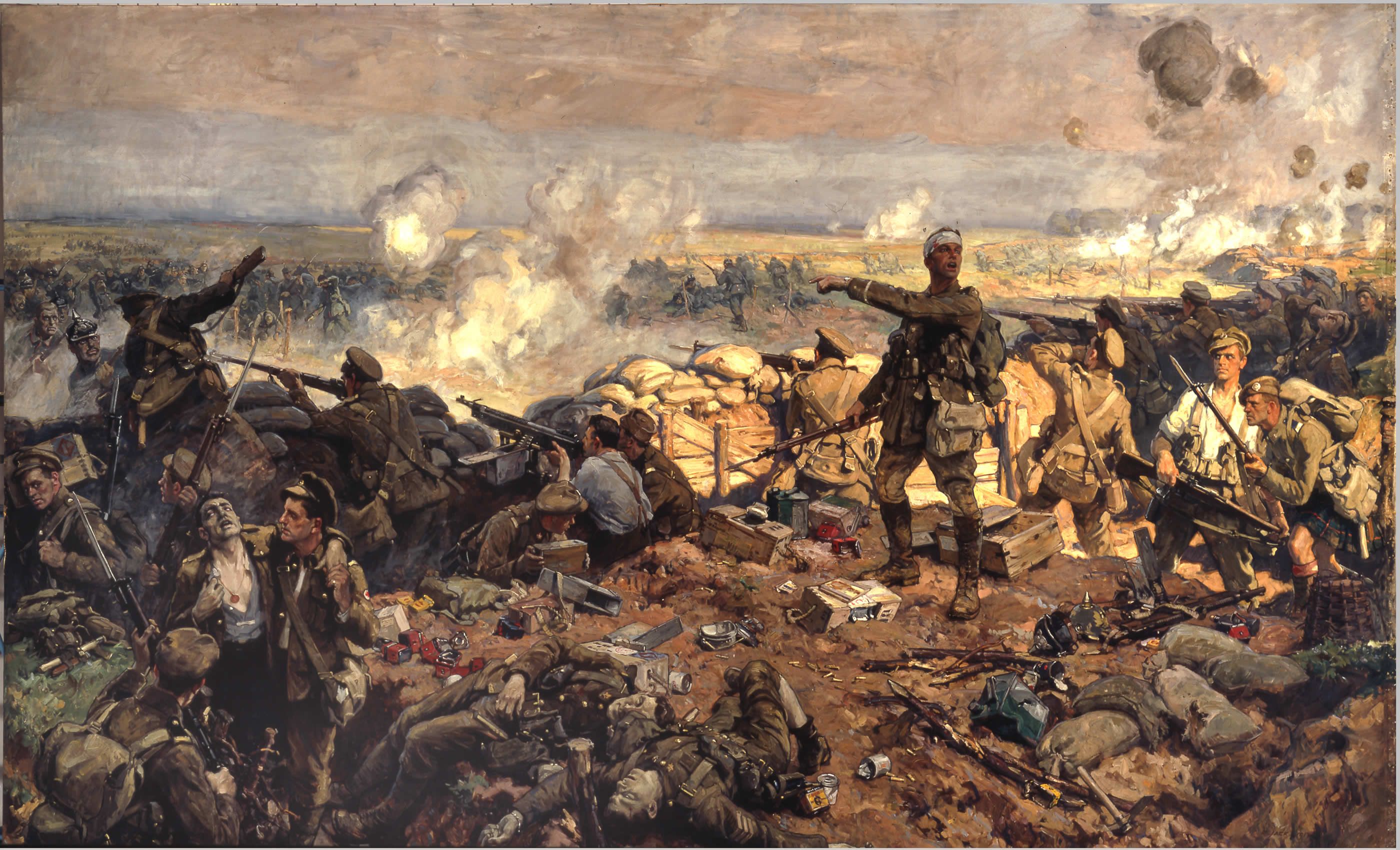We now call it the First World War or World War One, but is this really an accurate description? Was it really a global war? And was it really the "first"?
Contemporaries certainly thought it was a world war and called it that. The term "World War" (Weltkrieg) first appeared in Germany in 1914. The French and British referred to the war as "La Grande Guerre" or the "Great War", but also adopted the term "World War" later in the conflict.
The Germans, seeing themselves pitted against the global empires of Britain and France, felt the world was against them from the outset. From their perspective, the war was of such magnitude that it created a sense of the whole world collapsing - the term World War expressed the scale of fear the conflict unleashed.
After 1945, historians found the term "First World War" appropriate because they saw 1914-1918 as the first of a particular type of international conflict - the world's first industrialised "total" war - which had been followed by a second industrialised world war of this kind - 1939-1945.
There are certainly arguments that can be made, however, that the titles "First World War" and "World War One" are misleading. The Seven Years War, the mid-18th Century battle for supremacy among Europe's great powers, and the Napoleonic Wars were also fought across the globe, on multiple continents causing severe disruption to global trade. Moreover, if measured in comparison to World War Two, which saw widespread fighting in China, South-East Asia and the Pacific, then 1914-1918 looks more like a European conflict - the key fronts that would decide the outcome of the war were all in Europe.
The Seven Years' War
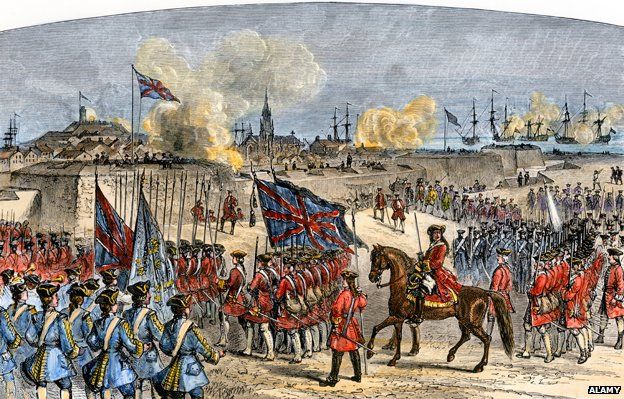 The Seven Years' War (1756-1763) involved the great powers of Europe - with France, Austria, Russia and Sweden on one side and Britain, Prussia and Hanover on the other. North America, India, the Caribbean, the Philippines and large parts of central Europe were affected.
The Seven Years' War (1756-1763) involved the great powers of Europe - with France, Austria, Russia and Sweden on one side and Britain, Prussia and Hanover on the other. North America, India, the Caribbean, the Philippines and large parts of central Europe were affected.
Napoleonic Wars
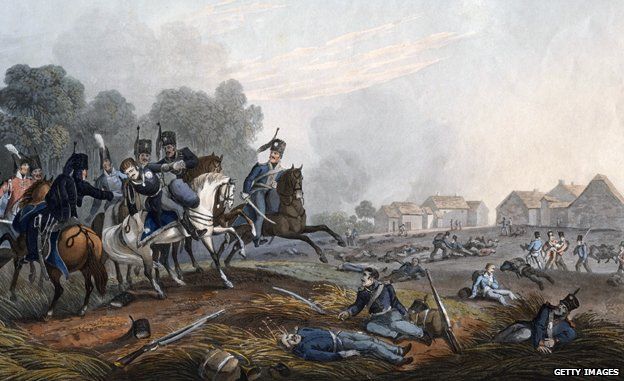 After the French Revolutionary wars of 1792-1803, a series of campaigns known as the Napoleonic Wars saw France in conflict with shifting alliances of European powers, ending in 1815 with the Battle of Waterloo. Related conflict spread through mainland Europe to the US, Latin America, Egypt and Syria.
After the French Revolutionary wars of 1792-1803, a series of campaigns known as the Napoleonic Wars saw France in conflict with shifting alliances of European powers, ending in 1815 with the Battle of Waterloo. Related conflict spread through mainland Europe to the US, Latin America, Egypt and Syria.

But the war was clearly global in reach, whether it was the first to be so or not. In 1914, the key belligerent states brought their empires automatically into war with them. Together the British and French empires spanned much of the globe, including almost all of Africa and Australasia; the Russian land-based empire reached from Siberia in the North to the Caucasus and to Vladivostok in the East. Japan went to war on the side of the Allies in 1914, invading German colonial territory in China. The entry of the Ottoman Empire into the war brought its colonial possessions in the Middle East, from Iraq to Palestine into the conflict. When, later in the war, the United States and also Brazil entered on the side of the Allied powers, joining Canada and Newfoundland which were already at war as part of the British Empire, then the war truly spanned the global continents.
It is true that none of the war's land battles occurred in the Americas, which some historians have claimed meant that World War One was not as global as the Seven Years war or the Napoleonic Wars (if you include the Anglo-American 1812 conflict). But this is to ignore the First World War at sea, which saw engagements off the Coronel and Falkland Islands, as well as the war's disruption of American shipping across the Atlantic.
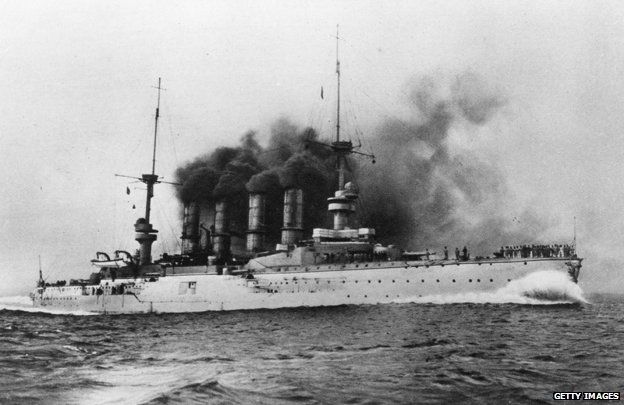
And even if there was no front in the Americas, there was fighting almost everywhere else. The opening shot by a member of the British forces in 1914 was fired not in Europe but in Africa, by a soldier named Alhaji Grunshi serving with the British as they attacked the German colony of Togoland.
The Western Front, which cut through Belgium and Northern France, is well known, reaching, for much of the war, from Dunkirk in the north to Belfort on the Swiss border in the south. But much of the rest of Europe also became a war zone. The Eastern Front, which stretched from the Baltics in the north to the borders of Austria-Hungary in the south - with much fighting in what is now modern day Poland, Hungary and Romania - covered a vast swathe of territory; Serbia was harshly occupied. Italy fought on a front that cut across its north eastern border and through the Dolomite mountains, with cities such as Venice threatened by aerial bombardment. Russia fought the Ottoman Empire in a terrible and bloody front that stretched across the Caucasus.
As the warring parties sought to break the deadlock the conflict spread even further. The British opened fronts in Gallipoli, at the Dardanelles straits; in Mesopotamia - what is now modern-day Iraq - where after a series of setbacks they ultimately captured Baghdad; and in Palestine, where they fought up from Egypt to capture Jerusalem. In the South Pacific, the Australians fought to capture a series of German colonial island territories, including New Guinea which Australia then occupied for the rest of the war. There was fighting in 1914, as the Japanese captured the German territory of Tsing-tau. In Africa, the Allies (principally Britain, France, Belgium and South Africa) fought to take over the four main German colonies there - German South-West Africa (now Namibia); German East Africa (now Tanzania); the German Cameroons and Togoland (modern-day Togo). Not all of the above fronts existed for the whole of the war, but their span is truly remarkable. An estimated two million Africans served in World War One as soldiers or labourers.
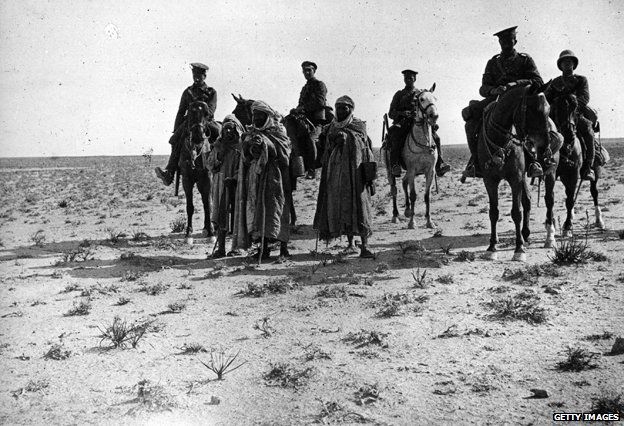
Moreover, beyond each front there was a massive hinterland where normal life was disrupted. Whole agricultural economies were ruined. Civilians starved or fled. In Africa, all of the armies used porters - locals used to carry the soldiers' food and munitions during the campaign, who were often coerced and who endured terrible conditions and high death rates. The war also gave rise to epic refugee flows in much of Eastern Europe, particularly in Russia, a process aggravated even further by the outbreak of revolution there in 1917. The war saw severe treatment of minorities. In particular, Tsarist Russia persecuted its Jewish population and the Ottoman Empire deliberately destroyed its Armenian minority through massacre and deportation.
World War One was also global in terms of the range of ethnicities and nationalities mobilised to fight. The British mobilised more than a million Indian men for the war. They made up one third of the British army on the Western Front in 1914 - but also fought in East Africa and in Mesopotamia. The French, meanwhile, brought men to Europe from overseas, including Indochina, Madagascar, Senegal, Algeria and Tunisia. The Germans too mobilised black colonial troops but only for use in Africa - Germany believed using non-white troops in Europe was a dangerous breach of colonial racial hierarchies.
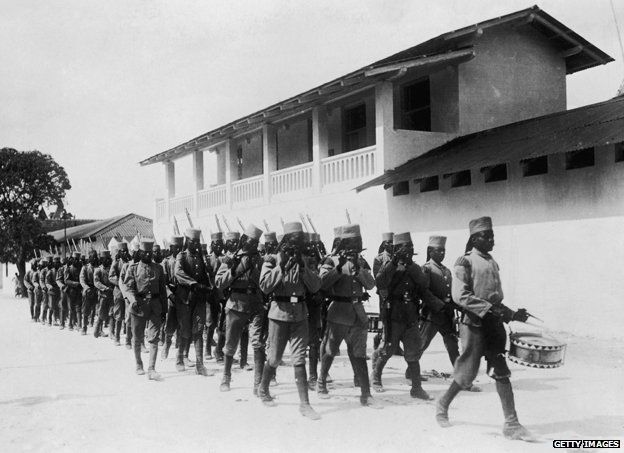
Along with fighting men, the British and French also recruited colonial labour on a massive scale, to work on the Western front and in other war theatres. Britain used black South Africans, Egyptians and even military volunteers from the West Indies. Both Britain and France also conducted an enormous recruitment campaign in China bringing some 135,000 Chinese labourers to Europe to do war work. Colonial labourers often found themselves close to the front lines, under fire.
If we measure the war in terms of its ideological effects it was clearly global. The war's economic legacy changed the world as the capital of finance shifted during the conflict from London to New York and, with vast swathes of European agriculture ruined, Argentina and Canada greatly increased their market share as food suppliers.
Global attitudes were also changed. The Japanese called for a clause on the equality of all races to be inserted into the League of Nations covenant after the war - they were unsuccessful, but the idea revealed changing mindsets. The first Pan-African Congress, held in Paris in 1919, advocated that African peoples should govern themselves. The war's legacy was new global ideas about the right of peoples to self-determination and the need for a global system of international co-operation, which was embodied in the League of Nations.
It was a war that utterly altered the world and in this regard, in the sheer scale of the changes it brought, it was certainly a first.



